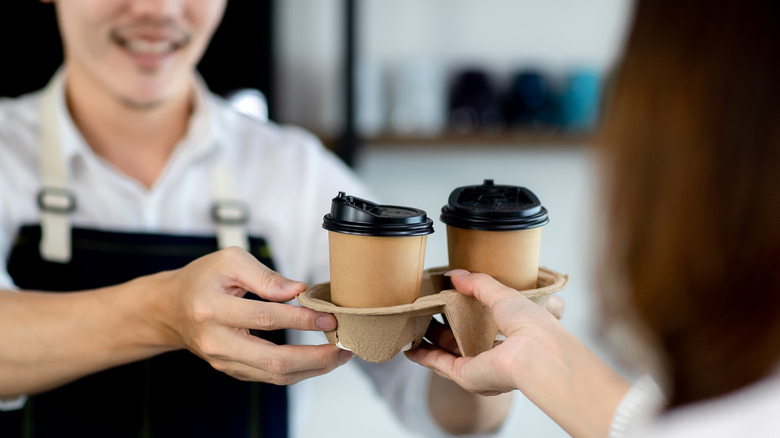Why You Shouldn't Drink Coffee Before Going To The Doctor
Whether you're visiting the doctor for a vaccine, test, or routine checkup, you want to get the most out of your trip. In addition to filling out questionaries and arriving on time to your appointment, you can improve your experience by skipping your morning cup of coffee before heading to the doctor's office.
Coffee can negatively affect your blood pressure levels. "Using coffee or other caffeine such as energy drinks or colas within an hour of having your blood pressure measured can make the number artificially higher," James Dewar, MD, vice chairman of family medicine at the University of Pittsburgh Medical Center, told The Healthy. An inaccurate test result can make it harder for your doctor to diagnose and treat health concerns.
Scientists are unsure why the caffeine in coffee impacts blood pressure levels so dramatically. Some theorize that the stimulant may shrink your arteries or release more adrenaline (via Mayo Clinic). Whatever the reason is, it's best to avoid that cup of coffee before going to the doctor. You can enjoy your beverage as soon as your appointment is over.
Coffee can make you feel more anxious before your visit
People who get nervous before heading to the doctor have another reason to avoid coffee before their appointment. Caffeine can increase levels of stress and anxiety, which are two emotions you don't want to be feeling before heading to the doctor. While small amounts of caffeine can boost your mood and improve your energy levels, too much can be overstimulating.
"Imagine muscles that are being prepped for sudden exertion but there's nowhere to go. This translates into what we know as the jitters," Jen Wolkin, Ph.D., a New York-based neuropsychologist, told Prevention.
Coffee can also aggravate anxiety or nervous disorders and make your symptoms even worse. It may increase your heart rate and blood flow, which can mimic the feelings of a panic attack. It will be much harder for you to focus during your appointment if you feel anxious and stressed. It can also make some procedures and tests more uncomfortable if you are tense or jittery.


